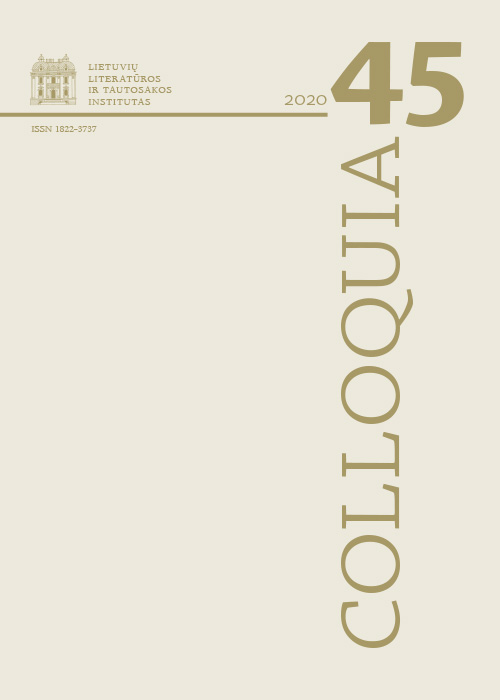History in the Scope of a Female Aristocrat: Historical Novels by Sophie de Tisenhaus de Choiseul-Gouffier
Abstract
The article discusses the works of Sophie de Tisenhaus de Choiseul-Gouffier (1790–1878), a writer from historical Lithuania, which mostly consist of the historical novels. The novels, written in French and published in Paris, are based on the history of the Polish-Lithuanian Commonwealth.
The article analyzes the specifics of the historic genre: individual motives for choosing it, communication strategy, specifics of history representation, and reflection on gender, social and national identity. The author’s memoirs are useful for the genesis of historical writing in the aristocratic environment of dilettante arts, influenced by the 19th-century mass experience of history and the tendency to project it into a historical narrative. The author of the article concludes that the strategy of cultural diplomacy characteristic of Sophie de Tisenhaus de Choiseul-Gouffier’s novels—the goal of popularizing Polish and Lithuanian history in the international arena in order to anchor the historical and cultural memory of a country deleted from the European map—is not the only one defining her historical fiction. In terms of identity reflection, her novels, which first of all stand out for their feminine perspective, reveal a “fundamental conflict” of aristocracy in the modern era, discussed by Norbert Elias, i.e. an ambivalent reconstruction and critique of the aristocratic ethos. From an aesthetic point of view, primarily because of the nature of historical knowledge, Sophie de Tisenhaus de Choiseul-Gouffier’s novels come forth as an alternative to the genre model of Walter Scott’s historical novel, which was popular in Europe at the time. Such an understanding of history allows the author to convey a distance based on values in relation to inherited and new forms of life emerging in modernity.
Downloads
Most read articles by the same author(s)
- Brigita Speičytė, The Hermit of Ustronė’s Broliai bajorai (Brothers Noblemen), or the Planes of Memory (A Little Bit From Everywhere, Vol. 2: Brothers Noblemen. The Hermit’s Gawęda) , Colloquia: Vol. 38 (2017)
- Brigita Speičytė, Beata Kalęba, Rozdroże: Crossroads: Polish Literature in the Context of Lithuanian National Rebirth , Colloquia: Vol. 39 (2017)
- Brigita Speičytė , Vincas Krėvė’s Agon , Colloquia: Vol. 43 (2019)
